Top intelligence official defends whistleblower, handling of complaint
The acting director of national intelligence faces a grilling by Democrats.
Acting Director of National Intelligence Joseph Maguire faced pointed questions before the House Intelligence Committee on Thursday about his handling of a whistleblower complaint that prompted House Democrats to launch a formal impeachment inquiry against President Donald Trump.
Maguire did not transmit the complaint -- centered on comments made by Trump to Ukrainian President Volodymyr Zelenskiy in a July phone call -- to Congress until Wednesday, though the intelligence community inspector general considered it "credible" and of "urgent concern," requiring reporting to Congress. But the acting director of national intelligence and the Justice Department blocked the inspector general from doing so, arguing that it did not meet the threshold requiring its transmission to lawmakers.
Maguire defended both the whistleblower and his handling of the complaint.
Here is how the hearing unfolded.:
12:15 p.m.
For more than 20 minutes, Chairman Adam Schiff ended the hearing by pushing Maguire on whether the allegations merit additional investigation, given the potential limits of the intelligence community inspector general and the Justice Department decision not to investigate based on the DNI's referral.
"I'm just trying to get to whether the president is somehow beyond the reach of the law," Schiff said.
"No, sir. No person in this country is beyond the reach of the law," Maguire said.
"The FBI is not authorized to investigate any of this. Any of this. So the IGs can't do it according to the Department of Justice. The FBI can't do it because it doesn't meet their threshold that makes it worthy of investigation. So, at this point only this committee and this congress is in a position to investigate," Schiff said.
"I want to ask you, going to the whistleblower complaint whether you believe these allegations are worthy of investigation. The whistleblower says, I have received information from multiple U.S. government officials that the president of the United States is using the power of his office to solicit interference from a foreign country in the 2020 U.S. Election. You would agree that should be investigated, would you not?" Schiff asked.
Maguire repeatedly signaled that he believes that question should be left to Congress to answer.
"Chairman, the horse has left the barn. You have all of the information. You have the whistleblower complaint. You have the letter from the IC IG. You have the office of legal counsel opinion ... I believe it is a matter to be determined by the chair and this committee," Maguire said.
Schiff wrapped up by speaking to viewers and the Ukrainian people, saying Congress supports their "struggle for democracy."
"We support you in your effort to root out corruption, and what you are witnessing and what you are seeing in the actions of this president is not democracy.... What you saw in this committee is democracy. As ugly as it can be, as personal as it can be, as infuriating as it can be, this is democracy,: Schiff said.
11:55 a.m.
Maguire said he did not believe two senior intelligence officials, former DNI Dan Coats and his principal deputy, Sue Gordon, had knowledge of the whistleblower’s complaint prior to their departures from the Office of the Director of National Intelligence.
“To the best of my ability I do not think that either Director coats or our principal deputy, Sue Gordon, had any sense whatsoever about this whistle-blower complaint or that Michael Atkinson had it.”
Coats and Gordon both left their posts in August, prompting some to connect their departures with the complaint, in light of the simultaneous timing.
11:35 a.m.
Without referring specifically to President Trump’s interactions with the Ukrainian leader, Maguire clarified his stance on foreign meddling in the U.S. political system.
“It is unwarranted, it is unwelcome, it is bad for the nation to have outside interference in any foreign power,” Maguire said.
Earlier, Maguire said “the greatest challenge that we do have is to make sure that we maintain the integrity of our election system.”
11 a.m.
Maguire sought to defend the integrity of Michael Atkinson, the intelligence committee inspector general, and his investigation, calling the probe “thorough.”
Republican Rep. Elise Stefanik highlighted that the whistleblower did not directly witness the allegations described in the complaint. “This seems like a very important line to look into,” Stefanik said.
Maguire said Atkinson conducted the investigation “to the best of his ability. I have no reason to doubt that Michael Atkinson did anything but his job.”
10:43 a.m.
"When you read the complaint, were you shocked at all by what you read? Democratic Rep. Jackie Speier asked Maguire.
"I realized full well the importance of the allegation. And I also have to tell you, congresswoman, when I saw that, I anticipated having sit in front of some committee some time to discuss it," Maguire answered."
"Did the president of the United States ask you to find out the identity of the whistleblower? Speier asked.
"I can say -- although I would not normally discuss my conversations with the president -- I can tell you emphatically, no," he answered.
Speier: Has anyone else within the White House or the Department of Justice asked you? Speier continued.
"No, congresswoman, no," Maguire said.
10:34 a.m.
"Sir, you released a statement yesterday affirming your oath to the Constitution and your dedication to the rule of law. I'm having trouble understanding how that statement can you true in light of the facts here," Democratic Rep. Andre Carson asked.
"A couple things," Maguire responded. "The White House did not direct me to withhold the information. Neither did the office of legal counsel. That opinion is unclassified and has been disseminated. The question came down to urgent concern, which is a legal definition. It doesn't mean is it important, is it time urgent concern met the criteria we discussed several times here.
"All that did was just take away the seven days. As I said before, just because it was not forwarded to this committee does not mean that it went unanswered. The IC IG and the Justice Department referred it to the Federal [Bureau] of Investigation for investigation. And that was working while I was endeavoring to get the executive concerns addressed," Maguire continued.
"It was not stonewalling. I didn't receive direction from anybody. I was trying to work through the process and the law the way it is written. I have to comply with the way the law is, not with the way some people would like it to be. If I could have done otherwise, it would have been more convenient for me," Maguire said.
10:11 a.m.
"Director, were you ever advised by the White House not to provide this complaint to congress for any reason?" Democrat Rep. Jim Himes asked.
"No, congressman," Maguire said.
"Did you ever speak to the president about this complaint?" Himes continued.
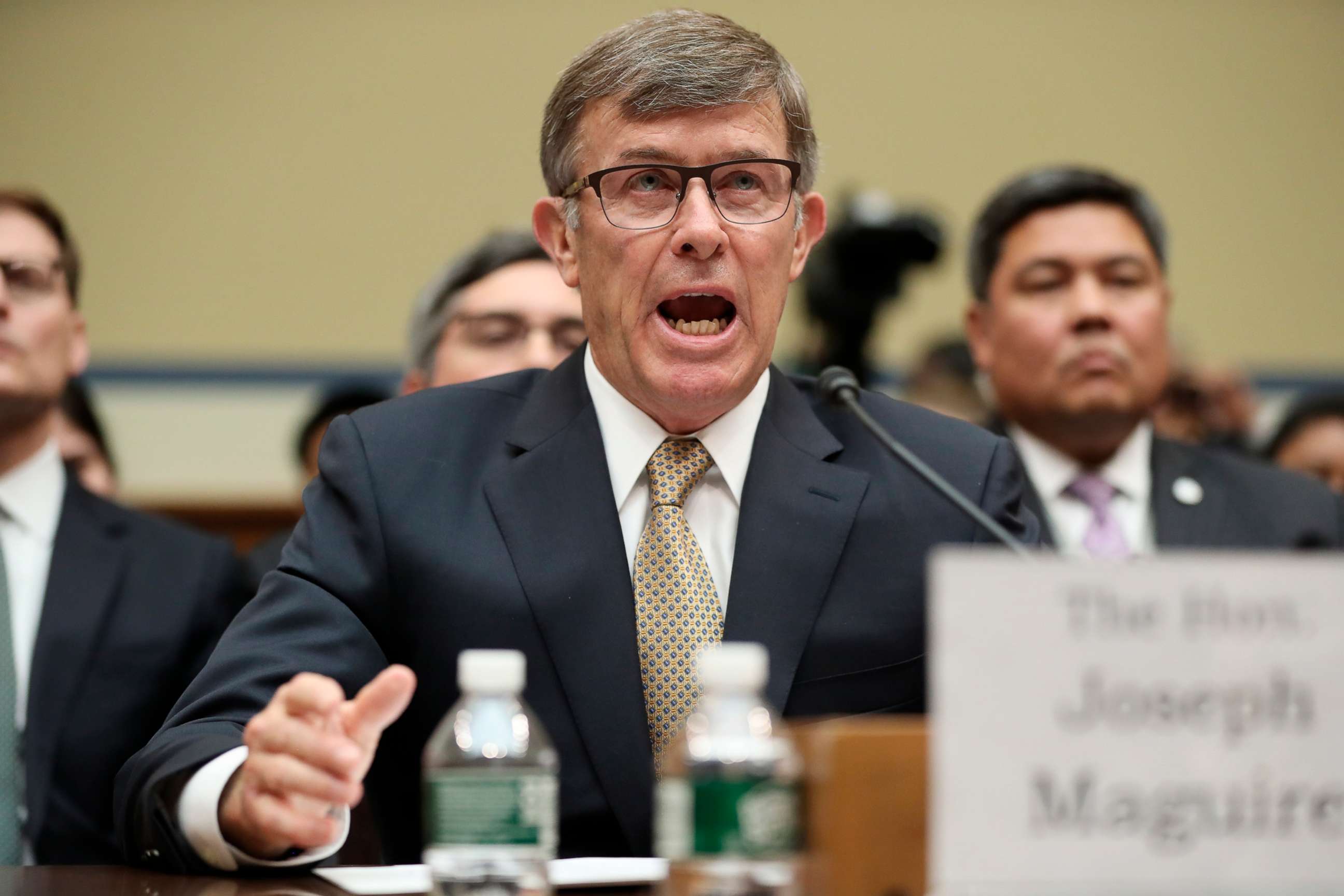
"My conversations with the president, because I am the director of national intelligence, are privileged and it would be inappropriate for me because it would destroy my relationship with the president in intelligence matters to divulge any of my conversations with the president of the United States," Maguire answered.
"But just so we can be clear for the record, you are not denying that you spoke to the president about this complaint? " Himes asked.
"What I'm saying, congressman, is that I will not disclose privileged conversations that I have, as director of national intelligence, with the president," Maguire said.
"Has the White House instructed you to assert that privilege?
"No, sir," Maguire answered. "It’s just a member of the executive committee – I mean executive branch – as a member of the National Security Council and the Homeland Committee, and I have to maintain the discretion and protect the conversation with the president of the United States."
10:02 a.m.
Ranking Member Devin Nunes pushed Maguire on the "leaks" that led to the first media reports of the complaint, suggesting that they had come from inside the intelligence community.
"So, did you, you or or anybody in your office leak this to "The Washington post" or NBC News? he asked Maguire.
"It was not from the intelligence community, from me or from my office," Maguire answered.
Maguire noted that White House officials with the National Security Council were also on the call, and that State Department officials were also briefed on the call.
Nunes argued that the White House "probably" didn't leak the complaint.
"I wouldn't say the White House. But there are individuals within the White House that may or may not," Maguire replied.
Nunes ended by telling Maguire to "have fun" and "be careful what you say" because it would be used against him.
9:49 a.m.
Committee chairman Schiff then began questioning Maguire.
"Would you agree that the whistleblower complaint alleges serious wrongdoing by the president of the United States?" Schiff asked.
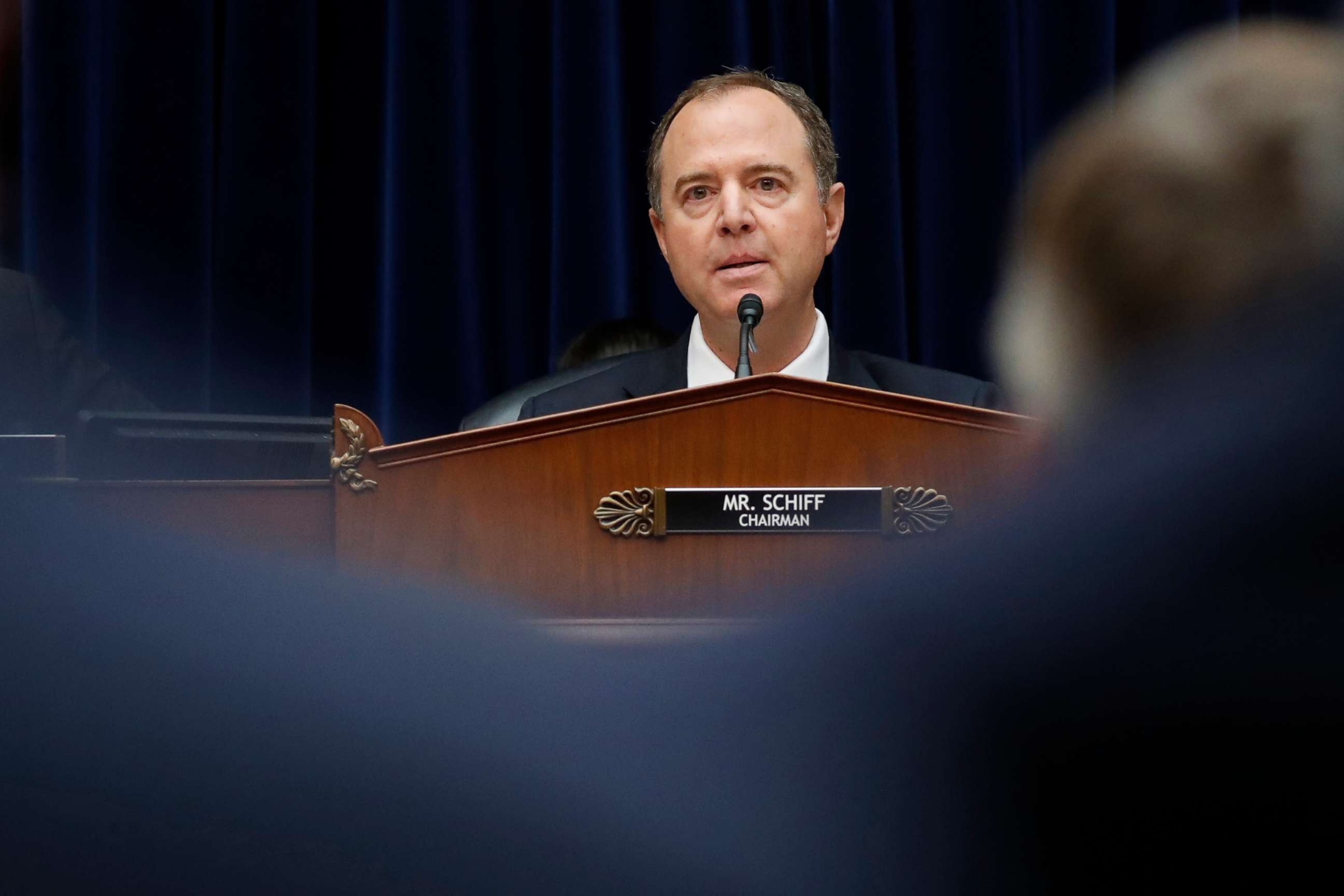
"The whistleblower complaint involved the allegation of that. It is not for me in the intelligence community to decide how the president conducts foreign policy.," Maguire answered.
"Can we also agree that it was urgent that if the president of the United States was withholding military aid to an ally, even as you received complaint, and was doing so for a reason to exercise leverage over the president of Ukraine to dig up manufactured dirt on his opponent -- can we agree that it was urgent while that aid was being withheld?" Schiff asked. "I'm talking about the common understanding of what urgent means. The inspector general said this was urgent, not only in the statutory meaning, this was urgent as everyone understands that term. Can we agree that it was urgent?"
"It was urgent and important," Maguire responded. "But my job as the director of national intelligence was to comply with the whistle-blower protection act and adhere to the definition of urgent concern, which is a legal term."
"The first place you went was to the White House," Schiff said. "Do I understand that from your opening statement? The first place you went for a second opinion was to the White House?
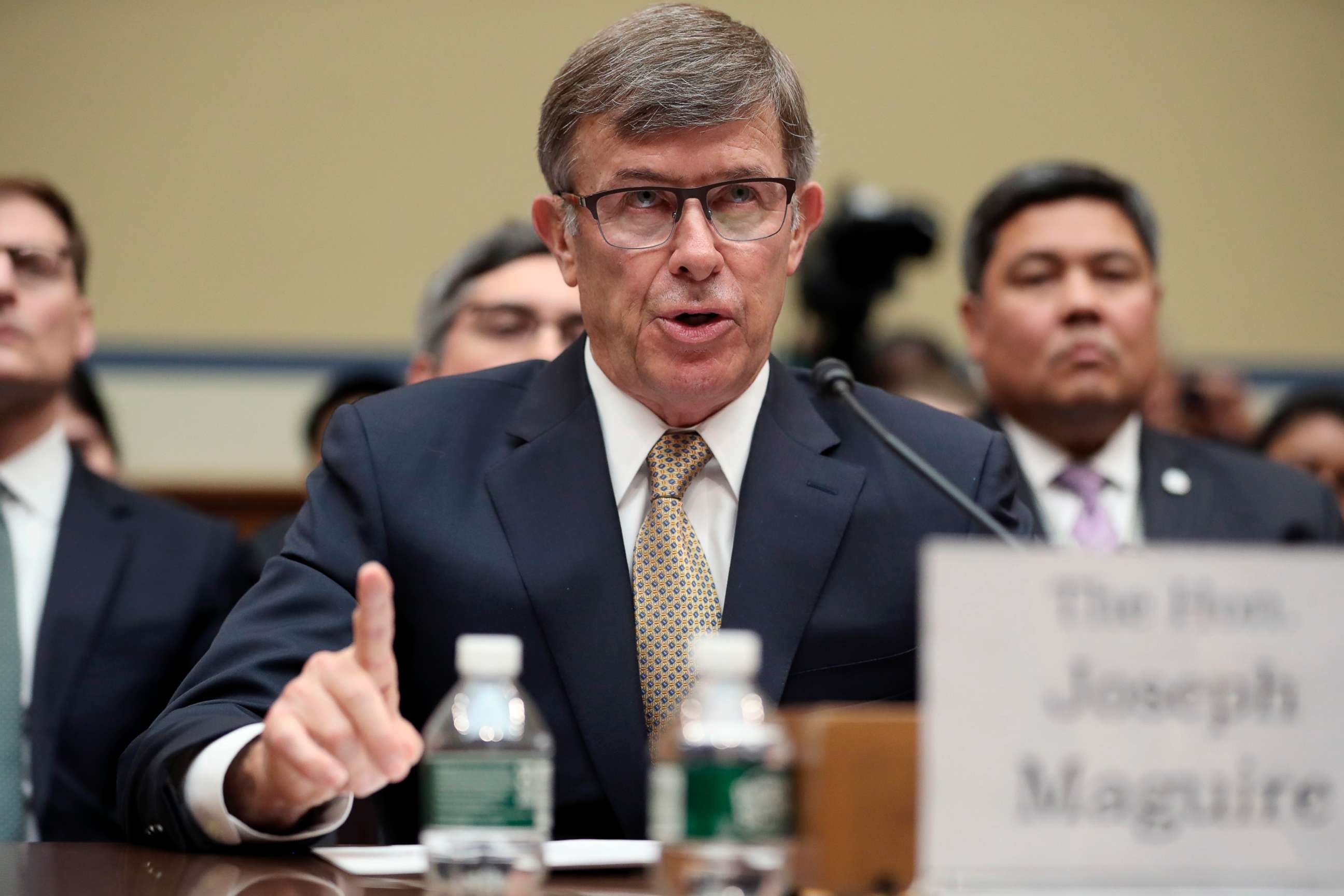
"I did not go for a second opinion. The question was, is the formation contained here subject to executive privilege, not whether it not -- whether it met urgent concern. We went to the White House first," Maguire answered.
"So you went to the White House first. So you went to the subject of the complaint for advice first about whether you should provide the complaint to Congress?" Schiff asked.
"Mr. Chairman, as I said in my opening statement, I believe everything here in this matter is totally unprecedented."I believe the whistle-blower followed the steps every step of the way. However, the statute was one in this situation involving the president of the United States who is not in the intelligence community or matters underneath. I think the whistle-blower did the right thing. I believe that the situation we have and why we're here this morning is because this case is unique and unprecedented," McGuire said.
9:37 a.m.
Maguire then explained that he blocked the complaint from being turned over to Congress -- as Democrats say the law requires -- after being advised by the White House of executive privilege concerns.
"Upon reviewing the complaint, we were immediately struck by the fact that many of the allegations in the complaint are based on a conversation between the president and another foreign leader. Such calls are typically subject to executive privilege," Maguire said.
"As a result, we consulted with the White House counsel's office and we were advised much of the information the complaint was in fact subject to executive privilege -- a privilege that I do not have the authority to wave. Because of that, we were unable to immediately share the details of the complaint with this committee," he said.
"After reviewing the complaint, and the inspector general's transmittal letter, the office of legal counsel determined the complaint allegations do not meet requirement of urgent concern and found I was not legally required to transmit the material to our oversight committee under the whistleblower protect act," Maguire continued. "I want to stress I believe the whistleblower and the inspector general have acted in good faith throughout. I have every reason to believe that they have done everything by the book and followed the law."
9:26 a.m.
"Until a week ago, the need to protect that process was a primary bipartisan concern of this committee. If the Democrats were really concerned with defending that process, they would have pursued this meter with a quiet, sober inquiry as we do for all whistle-blowers. That would have been useless for them. They don't want answers. They want a public spectacle," Nunes said. "This latest gambit is unhinged and dangerous. They should end the dishonest spectacle and get back to work to solving problems, which is what every member of this committee was sent here to do."
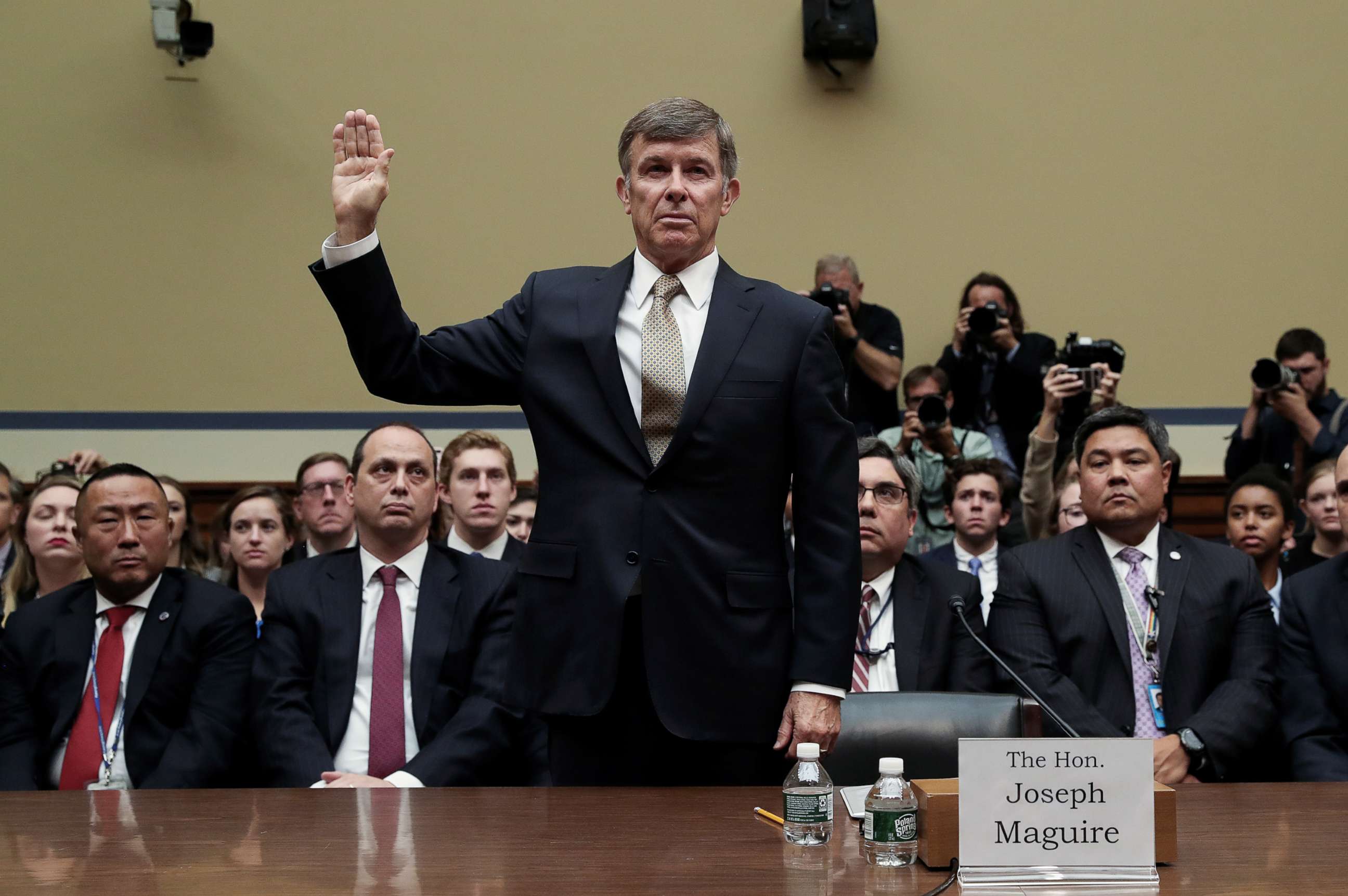
Acting DNI Maguire then began his opening statement.
"Before I turn to the matter of hand, there are a few things I would like to say. I am not partisan and I am not political," he said. "Throughout my career, I have served and led through turbulent times. I have governed every action by the following criteria. It must be legal. It must be moral. And it must be ethical.
"In my nearly four decades of public service, my integrity has never been questioned until now. I am here today to state that as acting DNI, I will continue the same faithful and non-partisan support in a matter that adheres to the constitution and the laws of this great country," Maguire said.
9:21 a.m.
The committee's top Republican, Rep. Devin Nunes of California, blasted Democrats in his opening remarks.
"I want to congratulate the Democrats on the rollout of their latest information warfare operation against the president and their extraordinary ability to once again enlist the mainstream media in their campaign," Nunes said.
"Once again, this supposed scandal ends up being nothing like what we were told and once again the Democrats, their media mouthpieces and leakers are ginning up a fake story with no regard to the monumental damage they are causing to our public institutions and to trust in government," Nunes said.
9:20 a.m.
"It would be funny if it wasn't such a graphic portrayal of the president's oath of office. But as it does represent a real betrayal, there's nothing the president says here that is in America's interest after all. It is the most consequential form of tragedy," Schiff continued.
"Although by means -- no means -- the only issue raised by the whistleblower's complaint which was shared with the committee for the first time only late yesterday. By law, the whistleblower complaint, which brought this gross misconduct to light, should have been presented to this committee weeks ago and by you, Mr. Director, under the clear letter of the law. Yet it wasn't," Schiff said.
9:14 a.m.
House Intelligence Committee Chairman Adam Schiff, D-Calif., delivered a blistering opening statement referring to Wednesday's release of a rough transcript of the call.
"Yesterday, we were presented with a most graphic evidence yet that the president of the united States has been betrayed his oath of office. Betrayed his oath to defend our national security and betrayed his oath to defend our Constitution," he said. "For yesterday, we were presented with a record of a call between the president of the United State and the president of Ukraine in which the president -- our president -- sacrificed our national security and our Constitution for his personal political benefit."
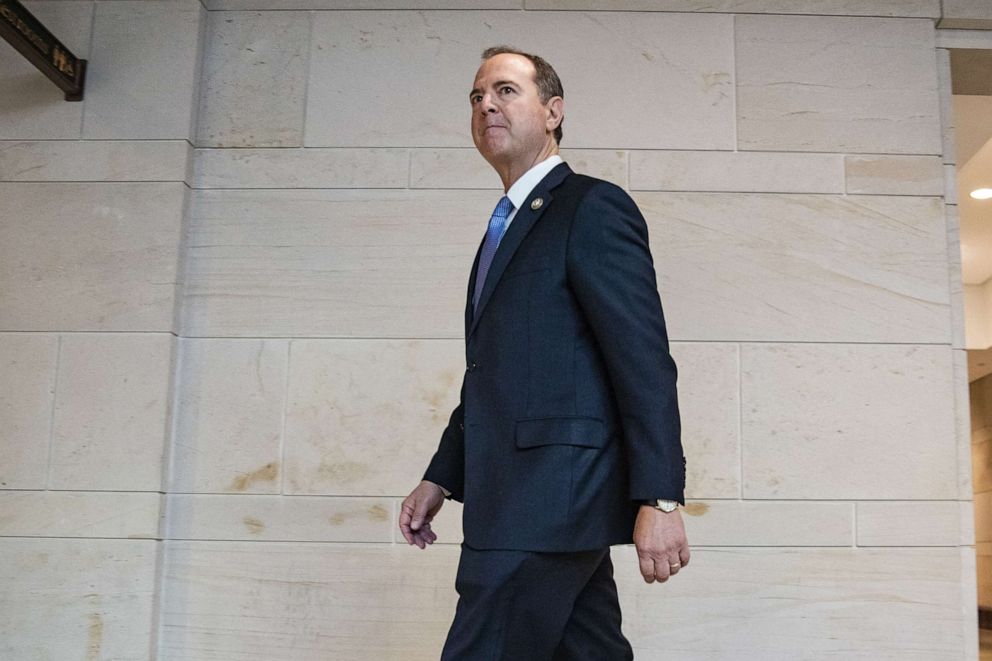
Lawmakers received access to the classified complaint on Wednesday after Schiff had subpoenaed the DNI for the materials and after the Trump administration released a memorandum about the call between Trump and Zelenskiy. The memo is not verbatim.
"I found the allegations deeply disturbing and very credible," Schiff said Wednesday night, after describing Trump's call "far more damning than I or many others imagined."
Democrats have launched a formal impeachment inquiry over the complaint and Trump's comments during the phone call, in which he urged Zelenskiy to work with the Justice Department to investigate Joe Biden's son Hunter and his business dealings in Ukraine when his father was vice president.
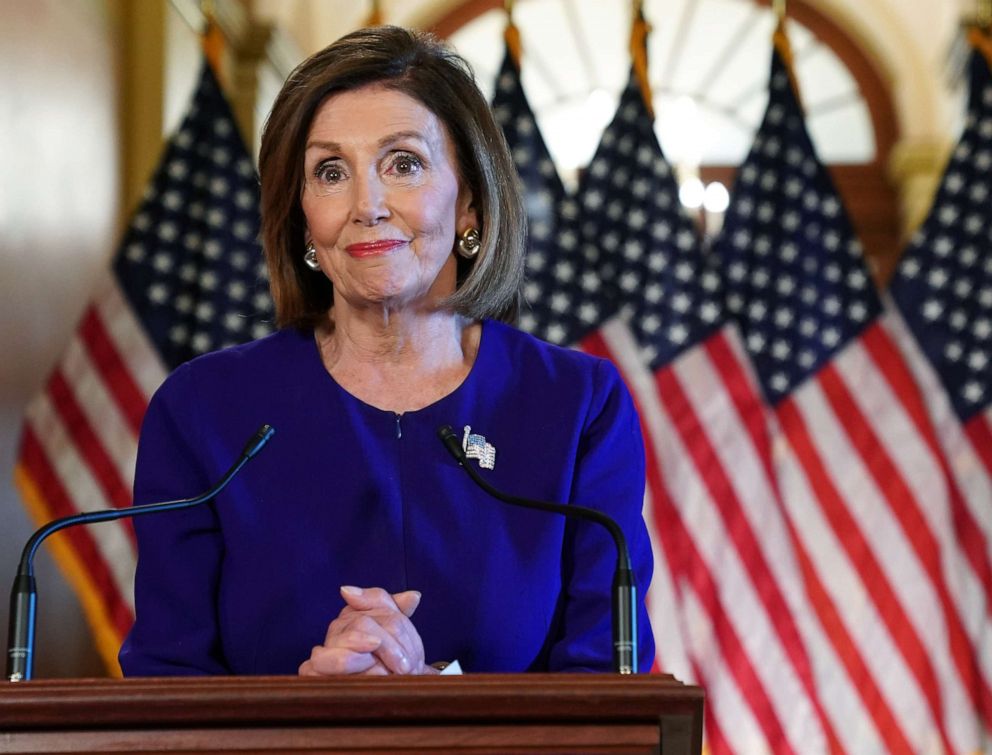
House Democratic leaders, led by House Speaker Nancy Pelosi, continued to organize their impeachment efforts behind closed doors on Wednesday, weighing the scope of their renewed impeachment investigation and whether it should encompass more than the complaint and Trump's comments to the Ukrainian president, according to a Democrat familiar with the deliberations.
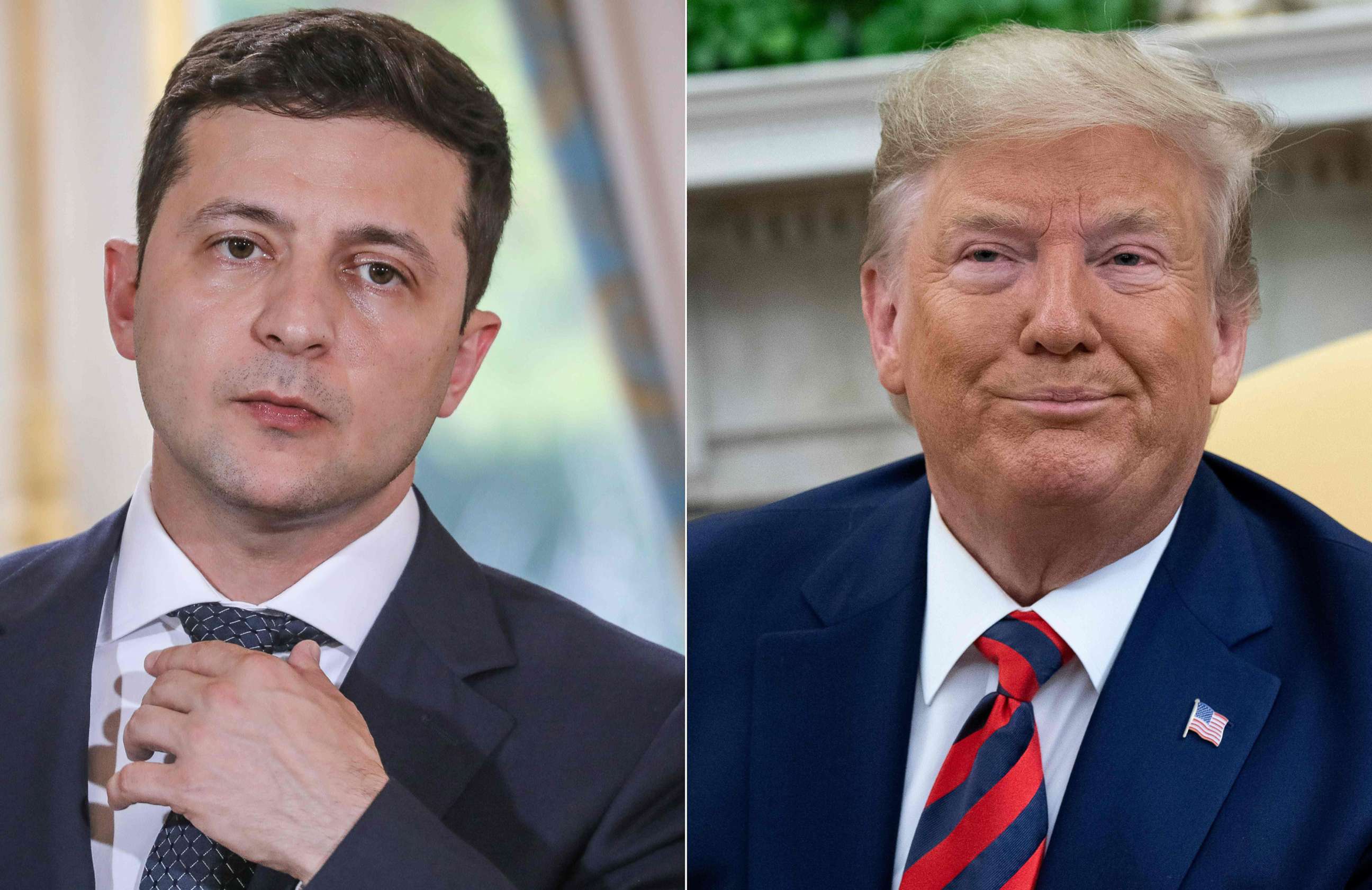
Many Republicans continued to defend the president on Wednesday after the release of the transcript, arguing that his comments to Zelenskiy and the call did not include a quid pro quo regarding the nearly $400 million in foreign aid that Trump had ordered his acting chief of staff Mick Mulvaney to hold back ahead of the July phone call. They said Democrats were working to damage Trump politically in an effort to reverse the results of the last presidential election.
A few Republicans, including Sens. Mitt Romney of Utah and Ben Sasse of Nebraska, expressed concern with the details of Trump's call. Romney described them as "deeply troubling."
In a statement released Wednesday, Maguire refuted a Washington Post report that he had threatened to resign if the White House attempted to keep him from testifying freely before Congress.
“At no time have I considered resigning my position since assuming this role on Aug. 16, 2019," he said. "I have never quit anything in my life, and I am not going to start now. I am committed to leading the Intelligence Community to address the diverse and complex threats facing our nation.”
Maguire will testify before the Senate Intelligence Committee behind closed doors later in the day.
Schiff said he is still seeking to interview the author of the complaint, though it's unclear if both parties had reached an agreement Wednesday night. Lawmakers said Wednesday that they did not expect to publicly discuss the details of the complaint, due to its classification.
ABC News' Elizabeth Thomas and Benjamin Siegel contributed to this report.




